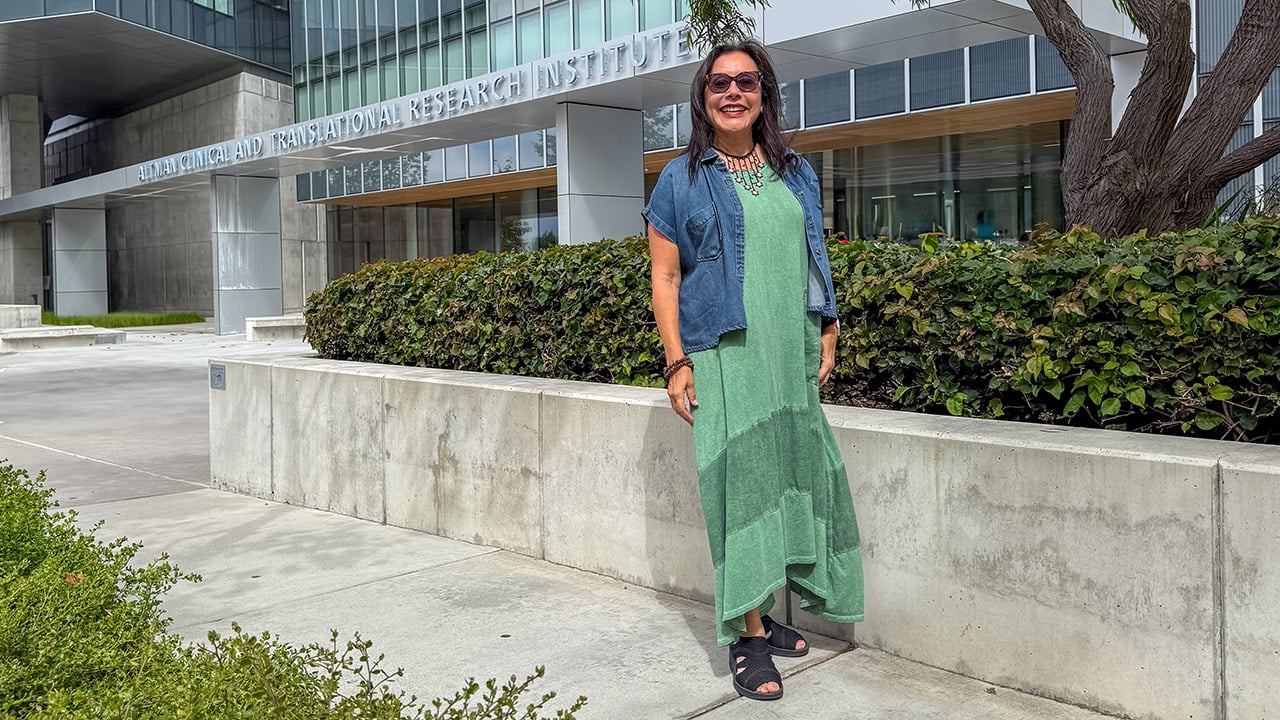Sitting with a latte contemplating the potential outcome of the year-long clinical trial she was participating in was a routine experience for Rosa Tellez-Moore. Annie Pierce, UC San Diego Health
Now age 70, Tellez-Moore and Vodkin reflect on her journey through the year-long clinical trial and the weight and lifestyle modifications she has tackled head-on since her diagnosis in 2021. By 2023, her liver biopsy revealed that her liver fat had dropped to under 5% — a normal level — her fibrosis had regressed from Stage 3 to Stage 2, and most importantly, she no longer had MASH.
“You’ve been such a motivated patient, and you have done so much work to restore your health,” Vodkin said, as Tellez-Moore gleefully clapped. “In addition to the clinical trial, when we have a patient like you who is working on a multi-system problem, which can lead to cardiovascular issues, you’re not just helping the liver, you’re also getting cancer reduction risks and cardiovascular improvements. You’ve done an incredible job, and a lot of the credit goes to you for these results.”
The Power of Clinical Trials
After a warm farewell with Vodkin, Tellez-Moore makes the short stroll across the UC San Diego Health La Jolla campus to the Altman Clinical and Translational Research Institute (ACTRI). She knows this building well, meandering from the café with her favorite latte down the hallway to the clinical trials center she visited a couple times each month for a year for testing and treatment.
MASLD is the most common chronic liver condition in the United States, affecting up to 25% of adults according to the National Institutes of Health. When fat accumulation in the liver leads to inflammation and damage, it progresses to MASH, which Tellez-Moore was diagnosed with. This more severe form can lead to fibrosis, cirrhosis, liver failure, and even cancer.
“Liver disease is a silent killer,” said Rohit Loomba, MD, a leading expert in translational research and innovative clinical trial design in MASLD who serves as director of the MASLD Research Center and is chief of the division of gastroenterology and hepatology at UC San Diego Health. “Most people don’t know they have a liver problem until it’s advanced and they develop cirrhosis because there are no obvious symptoms.”
At a time when no FDA-approved treatments existed for advanced fatty liver disease, UC San Diego Health was leading the charge in potential innovative solutions through clinical trials, like the trial Tellez-Moore found success with.
